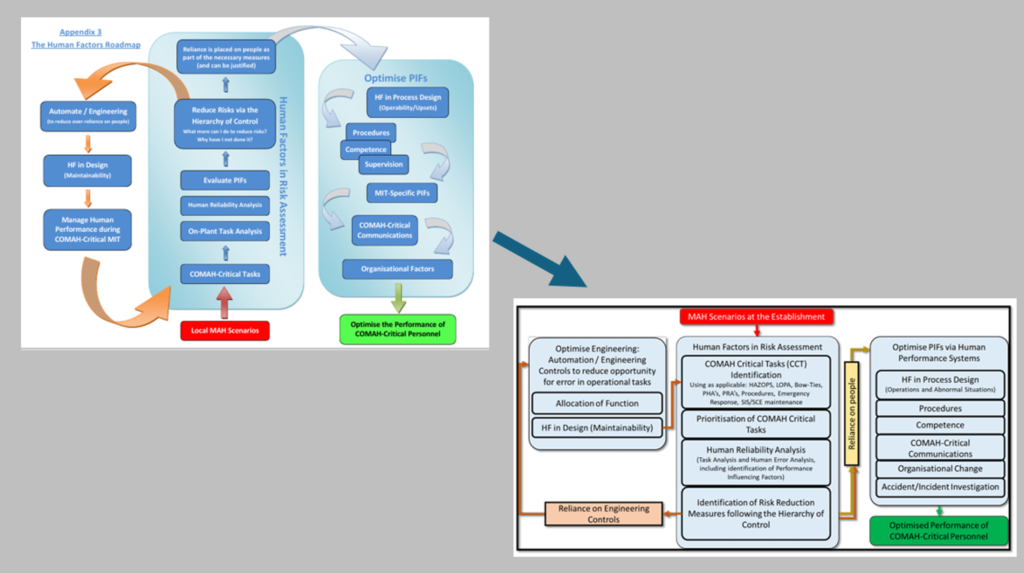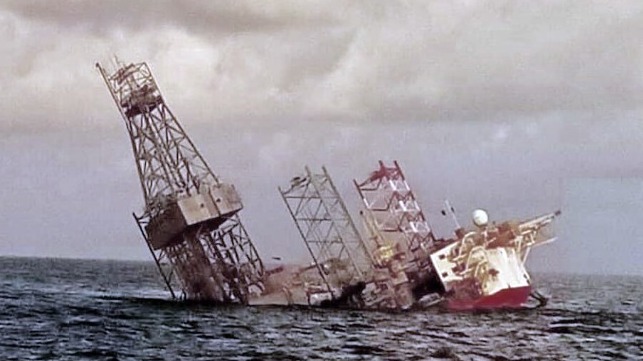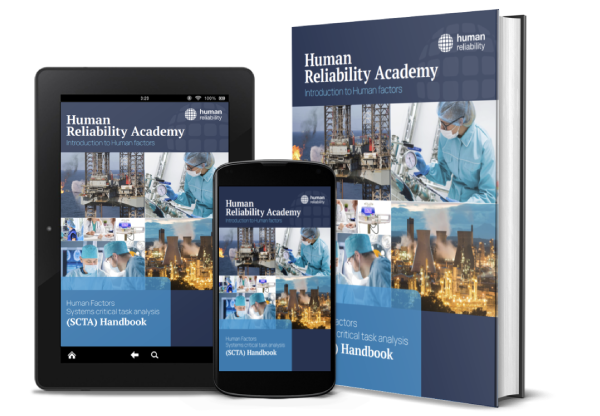HSE Human Factors Delivery Guide for COMAH sites: What’s new?

The HSE released a new Human Factors Delivery Guide for COMAH sites in December 2023. However, there was no briefing note or presentation to accompany it to tell us what was different and what was the same.
A year on, I’m writing that blog to attempt to fill that gap.
Human Factors GATEWAY Approach: Leveraging SCTA Outputs to Identify HF Issues in Related Tasks

This blog introduces the Human Factors GATEWAY (Generic Audit Tool Exercise to Widen and Accelerate Yield) approach. This extends Safety Critical Task Analysis (SCTA) insights from one task to similar critical tasks across multiple sites or work areas.
CAPA Culture and systems: Organisational learning in pharmaceutical manufacture

At HRA, we have found that reporting culture isn’t quite as healthy as we might hope, both in healthcare and other industries.
SCTA Workflow: Where the rubber hits the Human Factors Roadmap

Following her last blog, Lydea shows how the SCTA process can be used as a way to implement the HF Roadmap in practice
Critical Competences: SCTA & risk-informed competence standards

Safety Critical Task Analysis (SCTA) is a well-established process in the UK onshore and offshore petrochemical and oil and gas sectors. It is a systematic process for the assessment and management of human failure.
Organisational learning – how mature is your organisation?

Following his last blog on safety culture in healthcare, Steve describes the traits of a healthy reporting culture, its impact on organisational learning and the need to adopt a proactive approach to risk and safety.
Safety Critical Task Analysis (SCTA): A former Offshore Inspector’s perspective

I’ve noticed several recent posts claiming that for companies in the UK Oil & Gas sectors “there is a regulatory requirement to carry out Safety Critical Task Analysis”.
This statement needs to be put into context.
Human Reliability resolutions for the New Year

But before panic sets in… the book promises to tackle the feeling of not having enough time, to argue against being more and more productive, with longer and longer to-do lists. Something that can only end in dissatisfaction. Oliver Burkeman tackles something deeper to liberate us from the pressure of productivity and time.
Management Models for Proactive Human Factors

Proactive Human Factors attends to vulnerabilities before incidents happen to reduce risks and improve protections for staff, processes and assets. However, it is not always obvious how to organise this.













